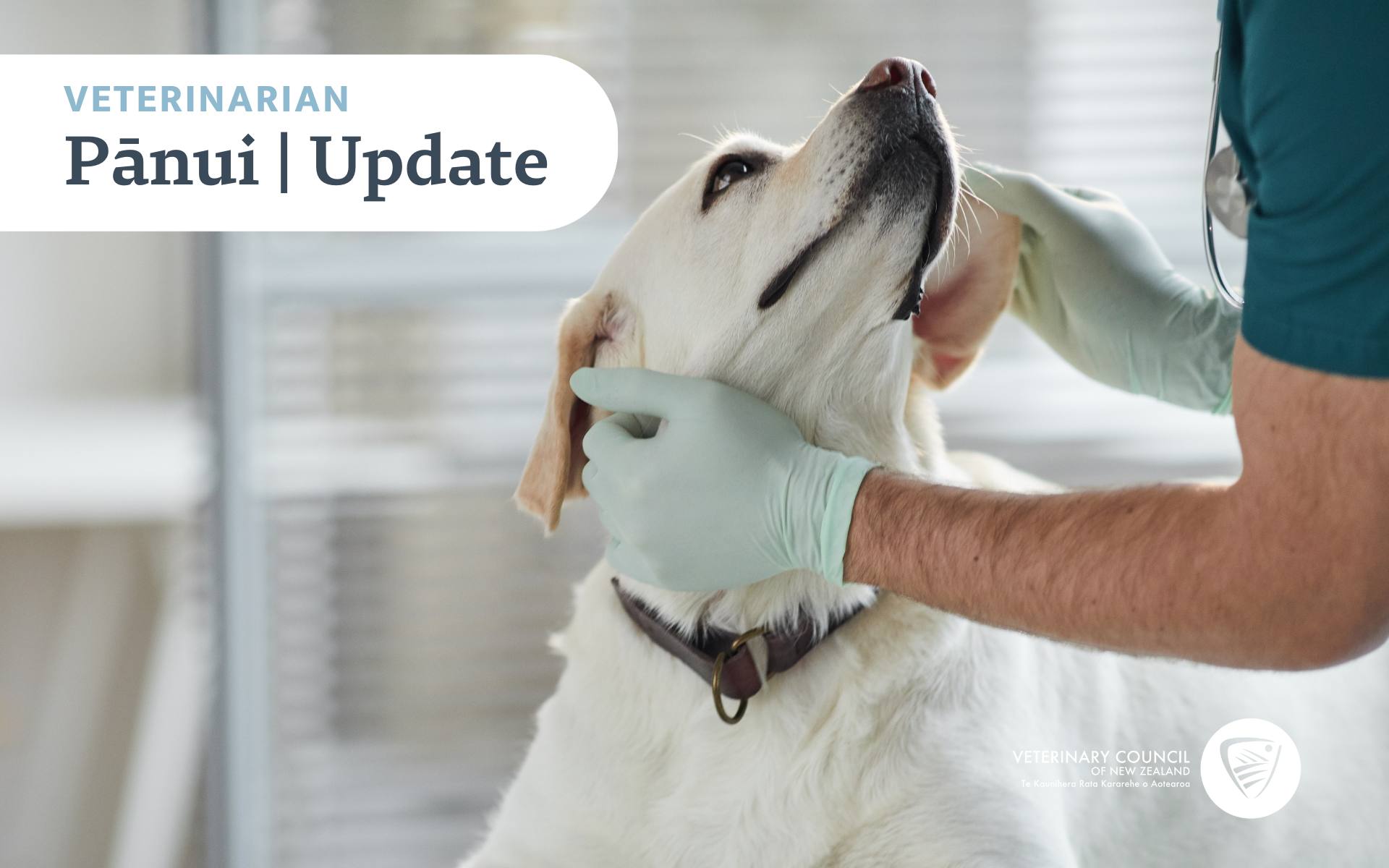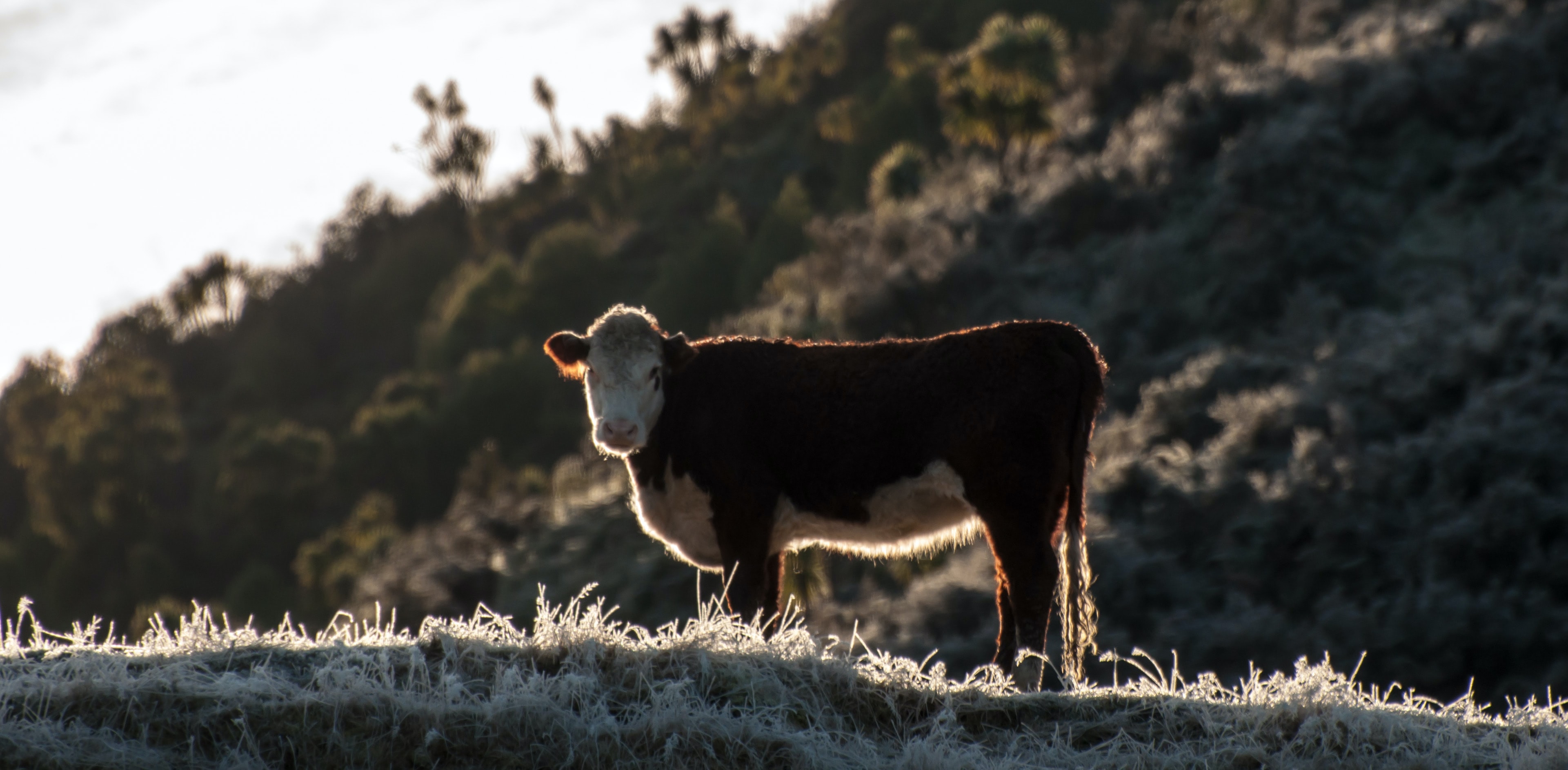
Veterinarian Pānui June 2023
Welcome to our June update. In this edition, we have included information about new VCNZ guidance on Veterinary Supervision. There is a new statement for Dry Cow Therapy, which includes some practical common scenarios vets might experience and how to navigate these, as well as an alert from MPI about the reassessment of anthelmintic ruminal boluses. Changes are on the way for Radiation Safety Regulations, and we congratulate Distinguished Professor, Nigel French who has been made a Companion of the New Zealand Order of Merit (CNZM). We have also added a quick note about our payment provider, Ezidebit, for any vets who may have noticed a transaction and been unsure where it came from.
Wherever you are, we hope you are keeping warm and well!
New Dry Cow Antibiotic Therapy (DCAT) scenarios
Just in case you haven’t watched the recent webinars on the VCNZ statement: Authorisation of Dry Cow Therapy , we have provided a summary below.
These webinars have been organised by the Veterinary Council of New Zealand (VCNZ) and the New Zealand Veterinary Association’s Society of Dairy Cattle Veterinarians Branch (DCV).
You can view a recording of the webinar here: https://vimeo.com/817154684/a9cab0133b .
The statement, and recently produced guidance on Dry Cow Antibiotic Therapy (DCAT), provide information for veterinarians about the responsible authorisation practises for antibiotic dry cow therapy. The requirements for veterinarians authorising (prescribing) antibiotics is detailed in the VCNZ Code of Professional Conduct for Veterinarians. It is important for veterinarians and the dairy industry that prescribing antibiotics is done responsibly and transparently.
Reducing blanket prophylactic use and moving towards selective antibiotic treatments is an important part of eliminating the overuse of antimicrobials in the dairy industry. Worldwide, antimicrobial resistance (AMR) is a hot topic, which means the choices veterinarians make about using antibiotics will influence New Zealand’s export trade opportunities and our international reputation.
Veterinarians in New Zealand have been working hard over the last five years to reduce the number of farms using blanket dry cow therapy, and that hard work has not gone unnoticed. The DCV understands that the number of clients who are not willing to change to selective DCAT are continuing to reduce. To assist, the DCV has collaborated with VCNZ to understand how the Dry Cow Statement can work in practical situations by describing various case scenarios. The detailed responses can be viewed on The Hub.
If you have any questions, please contact VCNZ or any of the DCV committee members.
Statement: https://hub.vetcouncil.org.nz/authorisation-of-dry-cow-therapy
Guidance: https://hub.vetcouncil.org.nz/dry-cow-antibiotic-therapy

New veterinary supervision guidance
VCNZ has published new guidance on Veterinary Supervision, which is available on The Hub. It standardises the terminology used across our Veterinary Supervision guidance, Code of Professional Conduct, and the Animal Welfare Act.
Terminology used for the different forms of supervision that veterinarians undertake or are required to perform were developed independently, and this meant that it was not clear how the terms applied across areas such as risk or competence.
The guidance also features expanded definitions that include examples of how the terms may be encountered or used in practice. https://hub.vetcouncil.org.nz/veterinary-supervision
Anthelmintic ruminal bolus alert
The Ministry for Primary Industries (MPI) has posted a new agricultural compound or veterinary medicine (ACVM) Alert Notification about a reassessment of anthelmintic ruminal boluses, which has just started, and the prohibition notice for the sale and use of four of the 16 products involved. The review will cover the chemical and pharmacological details of the products as well as their approved claims, use, and withholding periods in the target species.
Read the full notice here: Anthelmintic Ruminal Bolus Reassessment and Prohibition on Sale and Use
Radiation regulation changes coming into force this month
Changes to the Radiation Safety Regulations are set to come into force on 28 June 2023.
The amendments, which the Government decided on in May, include new safety fees, changes to compliance monitoring categories and a reduction to the scope of activities registered veterinarians can perform without having to obtain a use licence.
The changes follow the Office of Radiation Safety’s (ORS) review of the fees paid under the Regulations, which found that the fees didn’t fully cover the costs of administering the Act.
The amendments clarify that the authorisation provided by Schedule 3 of the Regulations is limited to using irradiating apparatus in general radiography for veterinary diagnostic purposes. This means using an irradiating apparatus for interventional procedures or treatment is not included in the authorisation.
A comprehensive summary of the changes is available on the Manatū Hauora – Ministry of Health website :
The Radiation Safety Regulations 2016 will be updated soon after 28 June, and will be available in their current location on the New Zealand Legislation website.
Information about the review and why the changes were made can be read in the public consultation document .
Professor Nigel French recognised in King’s Birthday Honours
Distinguished Professor, Nigel French has been made a Companion of the New Zealand Order of Merit (CNZM) for his services to epidemiology.
Professor French, who trained as a veterinarian in the United Kingdom, is a Distinguished Professor of Disease Epidemiology and Public Health at Massey University. He was one of 182 New Zealanders who received King’s Birthday Honours on 5 June for their service to the community or achievements.
Professor French has been an epidemiologist for 30 years and has been involved in Aotearoa’s COVID-19 response, through the Ministry of Health’s technical advisory group.
In addition to his role at Massey University, Professor French is the Chief Science Advisor for Te Niwha: Infectious Diseases Research Platform and works with the New Zealand Food Safety Science and Research Centre.
Congratulations, Professor French.

Found an Ezidebit charge on your statement? It could be from VCNZ
VCNZ uses Ezidebit as its payment provider. If you have noticed an Ezidebit transaction on your bank statements, please note that it could be from VCNZ. If you are unsure, contact us by emailing [email protected] to check before disputing the transaction.
Messages from others
The items below come from other organisations. We have agreed to share them with veterinarians because they may be of interest. If you have any questions or concerns about them, please contact the organisation directly.
Te Pūkenga Consultation for Unified Veterinary Nursing Programme
A consultation has been launched for the unified 4389 New Zealand Diploma in Veterinary Nursing (Level 6) programme, which is aligned to the new qualification currently out for review.
Te Pūkenga wants to ensure the unified programme of study will work for all current and future ākonga, partners and communities.
It is consulting widely on the final draft version of this programme, and invites key partners and stakeholders to review the programme document and complete the feedback form on the Te Pūkenga website .
Feedback is being sought on the strengths of the unified programme; whether there are any gaps that need to be addressed to ensure the unified programme aligns with the qualification; the embedding of a Passport to Safety in the first course; practicum hours; and whether the programme allows for regional flexibility.
Consultation closes at 12pm on Wednesday 14 June 2023.
Māori experiences in veterinary sector
Francesca Brown is researching the experiences of Māori employers, employees, or students in the Veterinary Sector.
The project involves Māori veterinary staff or students sharing their experiences from a Māori perspective. The data will be used to make recommendations to the industry about how it can provide better experiences for Māori staff and students. The interviews will take place over Microsoft teams or the phone. See the full participant information sheet here.
If you are interested in participating, please visit link https://forms.office.com/r/t92T5SksXW to answer a few demographic questions, and share your availability. Once the information is submitted, an interviewer will contact you to confirm a time. You can also contact Francesca directly by emailing [email protected] to discuss the research before committing to be involved.
This research is approved by the Otago Polytechnic Research Ethics Committee - approval number 994.